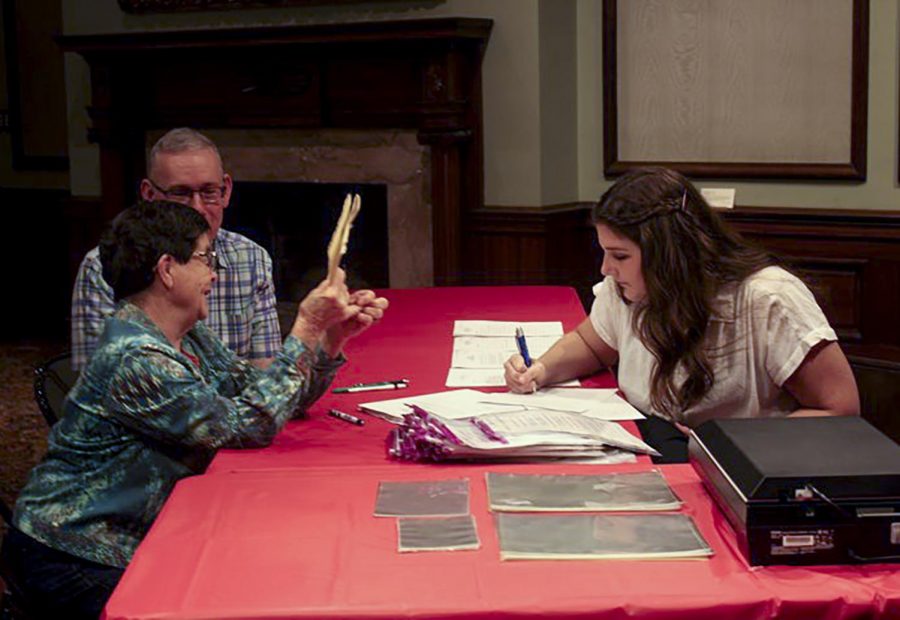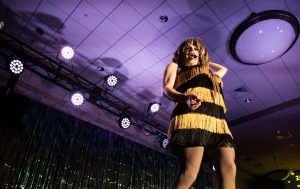Memory preservation brings community together
November 6, 2017
Community Heritage Day was held at the Kentucky Museum Saturday to digitize and photograph family memories with the chance to be added to WKU’s Folklife Archive.
Students from the WKU Department of Modern Languages and the Kentucky Folklife Program offered assistance with converting objects into scanned files or photographs for visitors to keep or release for community preservation. The event was created through the Kentucky Museum, the Kentucky Folklife Program and WKU Library Special Collections.
“We hope when people leave here they will have a better idea of how to save items,” Virginia Siegel, a folklife specialist for the Kentucky Folklife Program, said. She said allowing a piece to be added to the archives makes it a larger part of the community.
A family quilt from the early 20th century called “Ezekiel’s Wheel” was brought in for photographs to be taken. The owner, Ruth Morgan, said the quilt sat for about 60 years before it was uncovered.
“I felt like it had enough history that it deserved to be recognized,” Morgan said. She said the name “Ezekiel’s Wheel” relates to a story from the Bible of Ezekiel witnessing a wheel on fire come out of the sky.
Morgan said her great-grandmother pieced the quilt, but it was quilted by both her grandmother and great-grandmother. She said without preservation, things like her quilt would likely be forgotten.
“The older you get, the faster time goes,” Morgan said. A presentation on oral history, the preservation of memories through recorded dialogue between two people, was also introduced as a way to prevent time from affecting family information.
The purpose is to capture memories of historical importance, Sarah Schmitt, a speaker from the Kentucky Oral History Commission, said. She said the best way to do this is to research and plan questions or topics in advance for interviews.
“We’re not collecting the truth, we’re collecting memories,” Schmitt said. She said people’s perception of history can change over time.
Oral history has the potential to cause a bigger connection between family members, Schmitt said. She said it also allows researchers to gain opinions from people who experienced the past.
“A photograph is worth 1,000 words, but an oral history is a thousand words,” Schmitt said.
She said anyone interested in exploring Kentucky oral history can check the archives at Pass the Word.
Digital reporter Amelia Brett can be reached at [email protected].

























